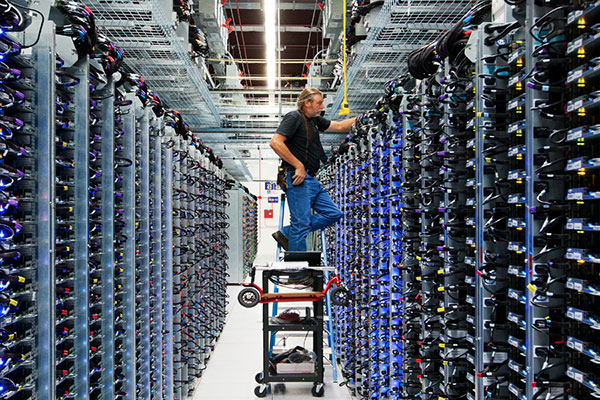One of the little discussed reasons for the US tech industry’s success is the role of military and intelligence spending by the government. Not only are various agencies funding research and enthusiastically buy technology, they are also being strategic investors in many companies.
In Sydney last week Dawn Meyerriecks, the CIA’s Deputy Director for Science and Technology, gave an interesting insight into the agency’s investment philosophies at the SINET61 conference.
The conference was aimed at drumming up interest in the technology security industry along with showcasing the connections between Australia’s Data61 venture and the US based Security Innovation Network (SINET).
SINET itself is closely linked to the United States’ security agencies with chairman and founder Robert Rodriguez being a former US Secret Service agent prior to his move into security consulting, venture capitalism and network-building.
Compounding the organisation’s spook credentials are its support from the US Department of Homeland Security along with the UK’s Government Communications Headquarters (GCHQ), so it was barely surprising the Australian conference was able to attract a senior Central Intelligence Agency officer.
Investing in flat times
“Flat is the new up,” says Meyerriecks in describing the current investment climate of thin returns. In that environment, fund managers are looking for good investments and the imprimatur of the CIA’s investment arm, In-Q-Tel, is proving to be a good indicator that a business is likely to realise good returns.
“If you can predict a market – and we are good predictors of markets – then the return on investment is huge,” she says.
“In-Q-Tel really leverages capital funding for good ideas. We get a twelve for one return, for every dollar we put in it’s matched by twelve dollars in venture capital in emerging technologies.”
Attracting investors
For the companies In-Q-Tel invests in along with those that supply technology to the organization, the CIA encourages them to seek private sector investors.
“What we’re telling our supply chains is you go ahead and tap into the capital markets,” Meyerriecks says. “If you can turn that into a commercially viable product then will will ride the way with the rest of the industry because it’s good for us, it’s good for the country and it’s good for the planet.”
Adding to the CIA’s attractions as a startup investor are the opportunities for lucrative acquisition exits for the founders, she believes. “Not only are we using that venture capital approach for emerging technologies but our big suppliers are sitting on a ton of cash.”
Diversity as an asset
Another lesson that Meyerriecks believes will help the planet, and the tech industry, is diversity. “Globalisation has show isolationism doesn’t work,” she says.
“Back in the day when I was a young engineer the best way to make sure your system was resilient was to harden its perimeters. the best ways to be ‘cyber resilient in the old days was by drawing the barriers to keep the bad guys out.”
“The best way to be cyber-resilient in the old days was to draw big boundaries around yourself to keep the bad guys out. The latest studies look at other things because you want to be resilient, you want high availability.”
Now, system diversity is seen as an asset.“Biologically the three factors that contribute to resilience are the ability to adapt, the ability to recovery and diversity,” Meyerriecks says. “We look to deliver high availability among components that may not themselves have high reliability.”
The future of investment
“I think we’ll see commercialisation still driving investment for applied R&D in particular,”Meyerriecks said in a later panel on where the agency is looking at putting its money.
“The big game changers will be around the edge, taking SDN (Software Defined Networking) to its logical extreme giving everyone their own personal networks, not just in data centres but at the edge of the network.”
“I think there’s lots of things that the commercial industrialisation of the technology and physical system are going to force us to grapple with on many levels.”
Risks in managing identity
An interesting aspect of Meyerriecks’ talks at SINET61 was her take on some of the technology issues facing consumers and citizens, particularly in the idea for individuals having their own personalised network.
“This opens up a whole range of things, ” she suggests. “Do I eventually not just be an IMSI or EIMI (the mobile telephone identifiers) but do I become an advertising node, does that become my unique ID? Do I a become a gaming avatar?”
“Then we get into the whole Big Data area. Computational anonymity is a phrase we use. At some point people start saying ‘this is crossing the line’ – it crosses the ‘ooooh’ factor.”
Changing Cybersecurity
“I think the definition of cybersecurity will be expanded to much more beyond wheat we’ve classically thought about in the past.”
Meyerriecks’ presentation and later panel appearance was a fascinating glimpse into the commercial imperatives of the United States’ intelligence community along with flagging some of the areas which concern its members as citizens and technology users.
The US security community’s role in the development of the nation’s tech sector shouldn’t be understated and Meyerriecks’ observation that private sector investors tend to follow the CIA’s investment path underscores their continued critical role.

Leave a Reply